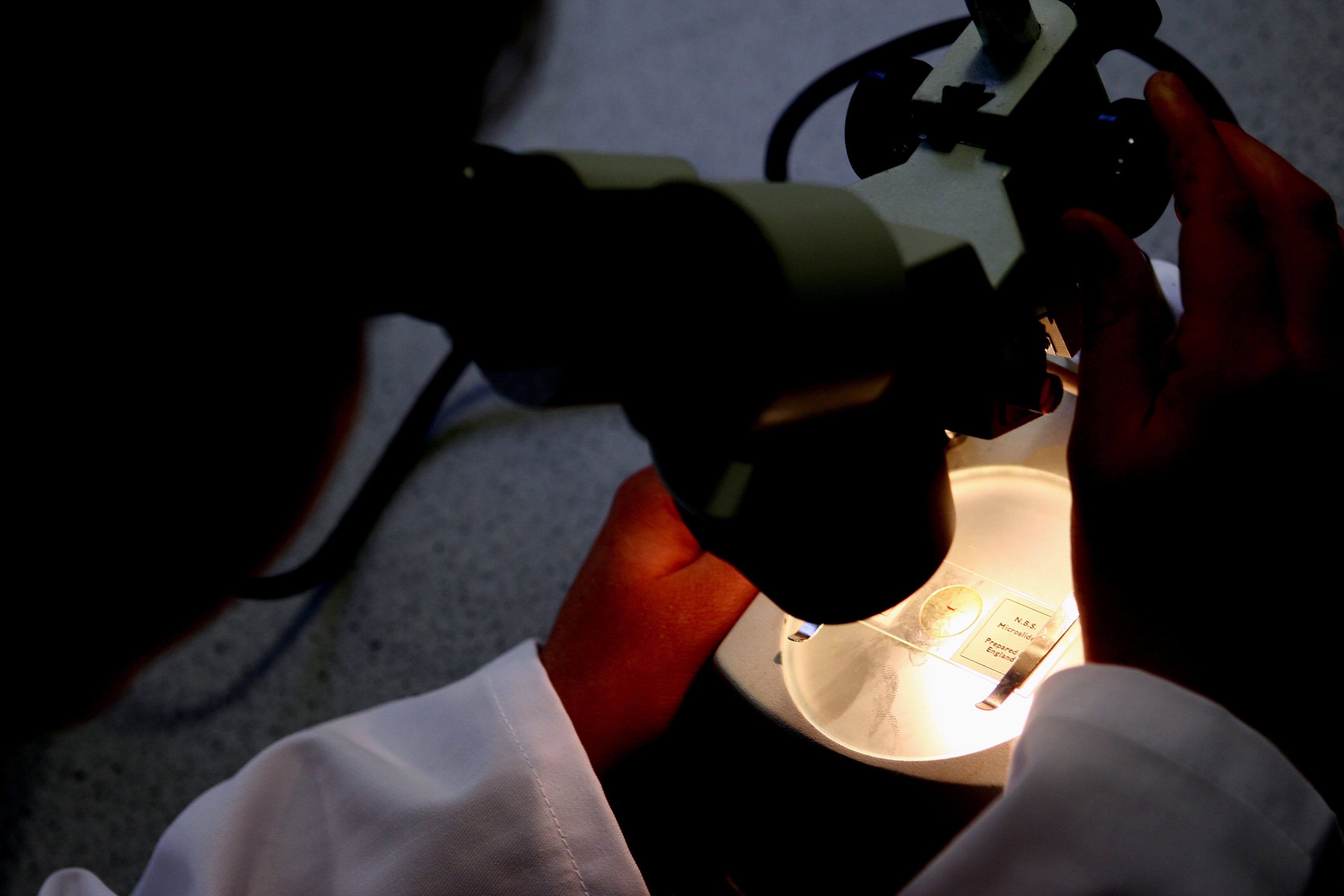Gene test could guide use of chemotherapy in bowel cancer patients
Scientists have found that patients respond differently to drugs based on a mutation in a gene called KRAS.

Your support helps us to tell the story
From reproductive rights to climate change to Big Tech, The Independent is on the ground when the story is developing. Whether it's investigating the financials of Elon Musk's pro-Trump PAC or producing our latest documentary, 'The A Word', which shines a light on the American women fighting for reproductive rights, we know how important it is to parse out the facts from the messaging.
At such a critical moment in US history, we need reporters on the ground. Your donation allows us to keep sending journalists to speak to both sides of the story.
The Independent is trusted by Americans across the entire political spectrum. And unlike many other quality news outlets, we choose not to lock Americans out of our reporting and analysis with paywalls. We believe quality journalism should be available to everyone, paid for by those who can afford it.
Your support makes all the difference.A gene test routinely used on the NHS can also shed light on whether a bowel cancer patient will respond – or be resistant – to chemotherapy, scientists have found.
Known as the KRAS test, it is currently being used to predict how patients will respond to the cancer drug cetuximab.
But in a study, published in the journal Nature Medicine, researchers from The Institute of Cancer Research, Imperial College London and the Netherlands Cancer Institute said the test could guide the use of chemotherapy in people with bowel cancer by predicting whether or not they will benefit.
Professor Nicola Valeri, honorary professor of gastrointestinal oncology at The Institute of Cancer Research and Imperial College London, said: “This is the first time we have a genomic marker already used in the clinic that can tell us whether a patient’s cancer will be sensitive or resistant to chemotherapy.
“We hope doctors will use this data to improve care for patients with advanced bowel cancer without delay.”
For the study, the researchers looked at the entire genomes – complete genetic material – of 37 patients with advanced bowel cancer.
These patients had been treated with two drugs – trifluridine and tipiracil – as part of a last-line chemotherapy treatment.
Responses to this treatment can vary greatly between patients, with some showing good responses while others see no benefit.
The team found that those who had a particular mutation (KRASG12) in a gene called KRAS were likely to have poor survival chances following trifluridine/tipiracilin treatment.
The study could have a big impact for people with advanced bowel cancer, by potentially giving them a more suitable treatment
The researchers then looked at data from a further 960 patients from 36 centres across the UK to confirm this finding.
Finally, the scientists looked at data from a clinical trial called RECOURSE and found that patients with a different mutation called KRASG13 saw their survival time triple from 2.9 months without treatment to 8.7 months with the treatment.
This was compared to no benefit from treatment in patients with the KRASG12 mutation, where both patients who received a placebo and patients who received the treatment survived for an average of six months.
The team found that patients without the KRAS mutations saw their survival improve by around two months after receiving treatment, compared to those who received a placebo.
Overall, the researchers said, the findings suggest that patients with KRASG12 mutations – accounting for around 28% of all patients with bowel cancer – do not benefit from trifluridine/tipiracil.
But patients without mutations in KRAS may benefit from trifluridine/tipiracil, and those with a KRASG13 mutation are likely to do very well on the treatment, they added.
Professor Valeri said: “It will be difficult for some patients to find out that this last-line drug will not benefit them, but this test will mean they are able to avoid unnecessary side effects and have a better quality of life with advanced cancer.
“Fortunately, our findings also reveal a group of patients who see substantial benefits from taking this type of chemotherapy.”
The experts said doctors could apply the gene test to direct treatment with trifluridine/tipiracil based on this evidence.
Professor Kristian Helin, chief executive of The Institute of Cancer Research, London, said: “This is an exciting advance for genomic medicine – showing that genomic tests are not just useful for guiding treatment with targeted therapies, but also chemotherapies.
“The study could have a big impact for people with advanced bowel cancer, by potentially giving them a more suitable treatment.”